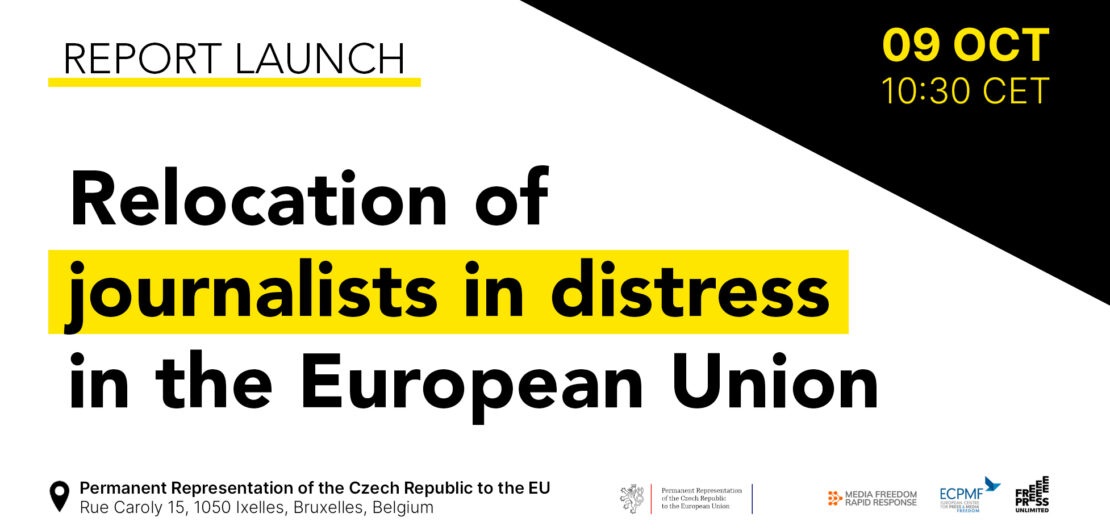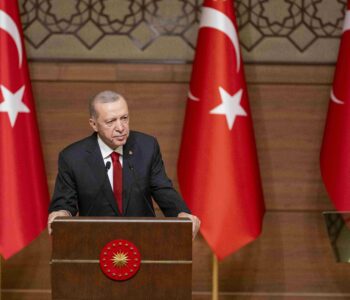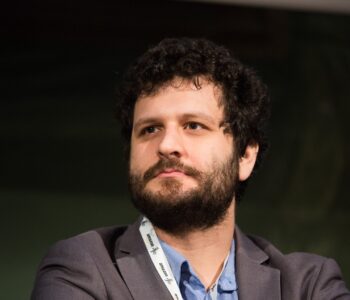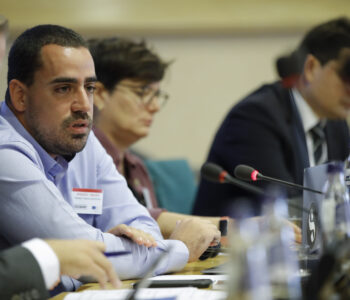There is a new generation of Greek journalists, whose voice stands for a healthy form of active citizenship and human rights-oriented political participation. For them, reporting on topics that have been considered controversial or too ‘sensitive’ for the Greek state, such as refugees or corruption, has been quite challenging. Stavros Malichudis, a reporter covering migration, is one of the journalists who had reportedly been targeted with spyware for investigating the living conditions of a young Syrian boy detained on a Greek island. One year after a hearing organized by the European Parliament’s investigative committee and despite international pressure to proceed with investigations, little has been done at a national level.
Refugee reporting: a brief chronicle of a scandal
It could have been the scenario of a psychological thriller movie. It is an ordinary Saturday, in November 2021. A young journalist, Stavros Malichudis, is scrolling through his Facebook feed, when an interesting title catches his eye: ‘Citizens under surveillance by the National Intelligence Services’. The article, published by a leftist cooperative media outlet called EFSYN (Efimerida ton Syntakton, lit. ‘Newspaper of the Editors’) describes a dystopic landscape for freedom of expression in Greece, claiming that EYP (the Hellenic Intelligence Service) has been monitoring the activity of people engaged into two controversial topics: Refugees and Pandemic denial. Alluding to the ‘Stone Years’, when the government would hold files on citizens based on their ‘ideological status’, the writer reveals, among others, how the secret services had been following every single step of a reporter researching the story of a young refugee boy on a Greek island. It doesn’t take long for Stavros to understand that the article is about him.
This is how journalist Stavros Malichudis unintentionally became one of the protagonists of the Greek Watergate, a wiretapping scandal referring to the prolonged monitoring of the mobile phones of politicians and investigative reporters. While the spying scandal was unfolding, Malichudis was nominated together with Iliana Papangeli for a major European journalism award for their project documenting the stories of unaccompanied minors in Moria’s refugee camp. In 2022, they won the IJ4EU Impact Award . In the same year, the annual World Press Freedom Index classified Greece as the lowest-ranked EU member for press freedom.
The Media Freedom Rapid Response (MFRR) stood since the beginning in solidarity with Malichudis and the journalistic team at Solomon and issued a statement urging the European Commission and European Parliament to seek immediate responses from the Greek government. In light of these serious developments, in September, 8, 2022, the PEGA committee of the European Parliament organized a hearing on the ‘Use of spyware in Greece’, where Malichudis attended as one of the victims of wire-tapping, together with Thanasis Koukakis, journalist targeted with Predator and Eliza Triantafillou, investigative journalist with the Inside story. One month later, the MFRR partner organisations would publicly support ‘the calls for the testing of mobile devices belonging to journalists in Greece who suspect they may have been targets of intrusive spyware or other advanced surveillance’.
Despite the outcry by foreign media outlets, as well as local left-leaning platforms, the dominant media in Greece kept a distance from the scandal, focusing mainly on the cases of politicians under surveillance and often illustrating the story as a complex game of political rivalry. There were also cases of popular media outlets documenting the story, yet highlighting fragmented aspects of it, creating thus, a different impression. The title of an article published in capital.gr in November, 4, 2022, is indicative of this tendency: ‘PEGA Commission: no proof of spyware use was found, but the complaints should be investigated in detail’.
The dominant tv channels of the country were certainly not interested in hearing what the affected reporters had to say, not to mention what their research findings were, despite them gaining international appraisal and recognition. ‘Even until today, I have never been invited to the news to talk about my work’, said Malichudis, interviewed for the OBCT in March 2023. ‘I have talked to the national radio stations of other countries, but not in my own. In Greece, the political reportage has gone extinct’.
One year later: Slow progress, low hope
After more than a year of vigorous investigations, in May, 8, 2023, PEGA adopted its final report and recommendation, introducing an EU-wide regulatory framework and a condition-based moratorium for the use of spyware. One month later, in June, 14, 2023, the Committee published a press release, calling for the conduction of full and credible investigations on the topic and also, for the adoption of institutional and legal safeguards to prevent abuse. The communique mentioned that ‘spyware should only be allowed in exceptional cases and for limited time’, while it also involved targeted recommendations to Greece and Cyprus. MEPs stressed that the illicit surveillance has put ‘democracy itself at stake’ and that ‘when used wrongly by governments, spyware is a huge risk to the rule of law and fundamental rights’. To help uncover and address such phenomena, Parliament proposed the creation of an EU Tech Lab, an independent research institute that would be mandated to investigate surveillance and provide technological support.
The news of these EU-related initiatives barely reached the Greek audience, as they were overshadowed by the deadly shipwreck of a boat carrying refugees that took place in the early hours of the first day, near Pylos; one of the worst accidents in its kind ever recorded in the Mediterranean sea. This dramatic incident triggered a wave of critical questions coming from independent local media regarding the government’s management of the tragedy and its stance towards refugees, overall. The shipwreck would mark the beginning of a turbulent summer for Greece. In the past two months, the country has been tormented by wildfires and deadly floodings; in this context, the focus of national media has been on extreme weather phenomena and alleviation measures for the struggling population. Once again, the government’s response has been heavily criticized by a small part of the media, who have not attributed this catastrophe primarily on climate change, but rather on lack of preparedness, disorganization and mismanagement. These opinions have been circulated mainly on the social media.
Personal implications for reporters and trauma
Looking at the wider picture, PEGA-led developments are certainly positive; at the same time, however, recommendations are vague and leave an open door for ‘exceptional cases’, meaning that governments will still be able to rely on loopholes to justify surveillance of citizens. It could be argued that the Committee has missed the opportunity to voice a strong message against practices that undermine media freedom in its member states, downsizing at the same time, the impact that such practices can have on reporters’ well-being, social circle and career.
Refugee reporting is a controversial issue in Greece. While investigative reporters’ mission is to document and shed light on the turbulences experienced by migrants, legal or not, research findings are limited when it comes to understanding and assessing the implications that this procedure as a whole has on reporters’ wellbeing, starting with the process per se of on-the-ground critical covering on refugee trauma to the implications of getting spied upon. Malichudis shares the impact that the surveillance scandal had on him both as a person and as a professional: “In the beginning, I would be scared to even touch my phone. My main fear was unwillingly putting friends or colleagues on the spotlight. I didn’t know why I had become a target, what these people wanted from me and what their intentions were; this made me feel unsafe and often suspicious. With time, I managed to distance myself from this situation. I understood that it wasn’t personal”. Becoming conscious of how vulnerable one can be to surveillance – or even physical attacks (as in the recent case of Kostas Vaxevanis) – might also have practical implications for one’s daily working routine: Adjusting one’s working space/offices to become less visible and less approachable or learning to work in smaller and more flexible teams are some of the ‘remedies’ that Malichudis and his team have resorted to.
Reporters in Greece, especially the young ones, continue being underpaid and relying on short-term contracts; furthermore, they are frequently reminded that there are some topics that simply should not be researched and some sectors that are meant to be untouched, such as the banking or the shipping sector in Greece. The fact that the biggest media outlets in the country are donor-dependent implies that one should not investigate anything exposing the donor and jeopardizing their interests. In this framework, there is a significant part of independent investigative journalists from Greece, in their majority young, who have chosen to report for foreign media only, driven both by financial reasons, but also by the fact that they enjoy more freedom. In an article written for the New York Times, Lauren Markham and Lydia Emmanouilidou share that ‘any journalist who covers refugee arrivals to the Aegean Islands or the Evros land border with Turkey risks arrest’.
Nevertheless, there is light at the end of the tunnel. Recent survey findings conducted in Greece speak of a gradual shift in public opinion regarding the credibility of information served en masse by the popular local media: For instance, according to the 2023 Digital News Report of the Reuters Institute, recently published in Kathimerini, there is growing mistrust among Greeks towards the ‘social media of well-established news platforms’ and the so-called ‘popular’ or ‘dominant’ news. Malichudis believes that the spyware scandal has helped restore the negative public image of journalists, by debunking the narrative of journalists as pawns of each ruling party. ‘The Greek audience is becoming aware’, says Malichudis. ‘Due to the scandal and all the discussions that it triggered, they are starting to understand that some journalists are, in fact, OK. This is why they are looking for alternative forms of media to access more reliable information. I believe that eventually, people will save Greek journalism’.
 Library
Library










